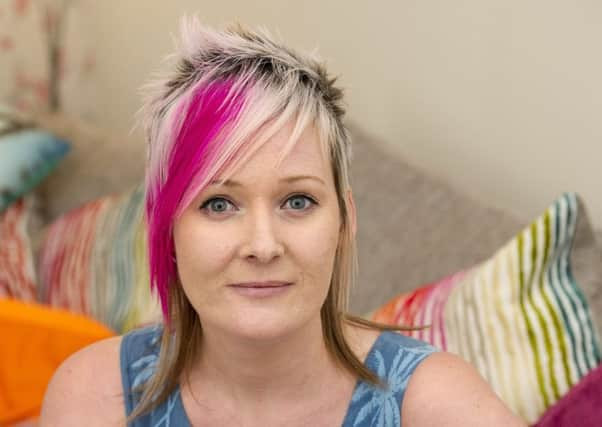Assault victim sets up charity after PTSD battle


Jacqui Suttie, of Prestonpans, was crippled by the debilitating condition after the attack in March 2013, which led to her having flashbacks and frequent panic attacks where she was unable to sleep for more than an hour at a time.
More than one in ten people in the UK will experience PTSD but it is often misdiagnosed, according to Ms Suttie.
Advertisement
Hide AdAdvertisement
Hide AdShe said: “I was on a train home at around 6pm and I was attacked. It is not always so much about what happened but your brain’s ability to process things. The common misconception is that only people in the armed forces get it.
“When I was told I had PTSD, I thought, ‘I haven’t been to war or seen the things they have seen. How can I have this?’”
The condition is characterised by a traumatic event which provokes fear, helplessness or horror in response to the threat of injury or death, and can affect anyone.
Ms Suttie describes the condition as “a memory filing error”, where the mind has been unable to deal with what happened so you get flashbacks where the memory reoccurs as the brain tries to process what it could not before.
She said: “My PTSD left me with debilitating, exhausting, uncontrollable and crippling fear – stuck in the fight/flight/ freeze adrenaline surge.
“Fear of everything, and unable to do almost anything, including just being me, without incredible effort.
“At times I was unable to move, breathe or speak from intense fear just going about my everyday life.
“I developed psoriasis under my eyes from crying so much, doctors wanted to put me on beta-blockers so I didn’t damage my heart from putting it under too much stress.
Advertisement
Hide AdAdvertisement
Hide Ad“I didn’t sleep for more than an hour at a time, my muscles and joints were in agony from being so tense, I’d chip my fillings from clenching my teeth so hard without knowing and I’ve made life difficult for everyone around me. I wasn’t me anymore, I became a highly sensitive faulty CCTV system.”
The 31-year-old had to take time away from her job in marketing and her recent marriage to husband Scott was placed under intense strain. A doctor finally diagnosed her with the condition and she underwent a treatment known as eye movement desensitisation reprogramming (EMDR) which effectively rid her of the PTSD after just six sessions.
She said: “I want people to know that just because you have PTSD, it doesn’t mean you have to live with it forever. There are treatment options which can get rid of it for good.”
The new charity, PTSD UK, aims to help sufferers find treatments such as EMDR and cognitive behavioural therapy.
For more information, visit www.ptsduk.org.